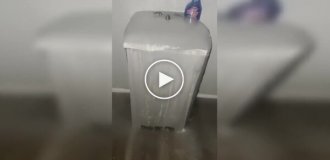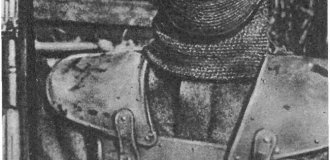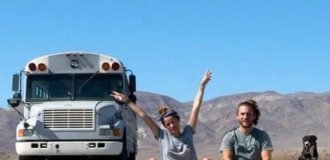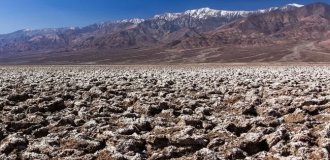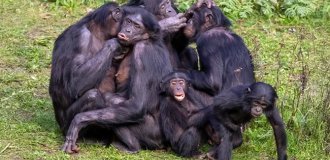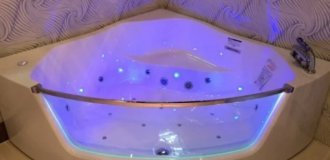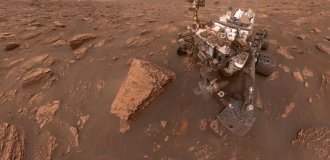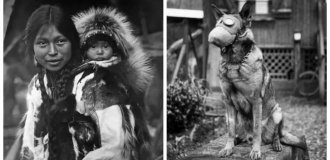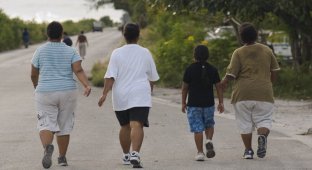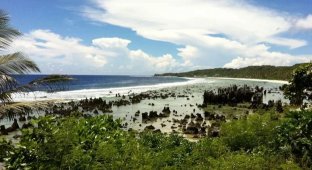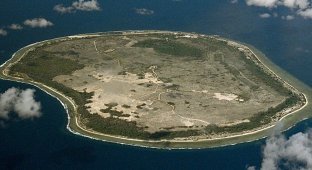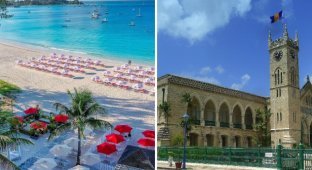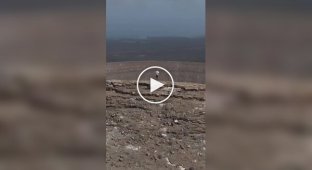Nauru - the country that ate itself (8 photos)
They drank, they ate, they were merry; they counted—they shed tears. This folk proverb could characterize the entire short history of the tiny island state of Nauru. 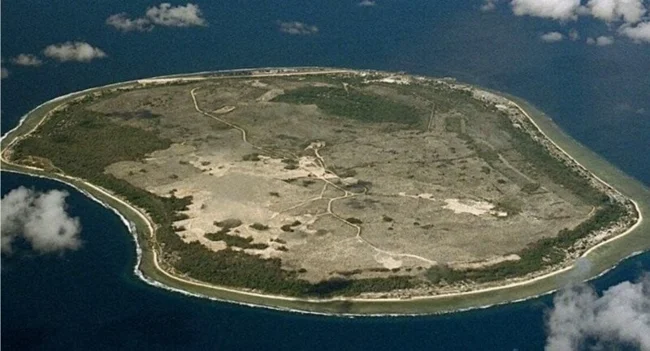
The smallest independent republic on Earth and a country without a capital, Nauru 50 years ago was one of the three richest countries on the planet. Its residents were awash in wealth, hired servants from China, bought expensive sports cars, flew 1,000 kilometers to Australia for weekends, and didn't take change in stores. Now they live on international aid, suffer from idleness and obesity, and don't know what to do with mountains of scrap metal made up of useless, rusty cars.
The history of Nauru is interesting and revealing: this is what happens to those who don't know how to manage the wealth that falls on their heads. Remarkably, in Nauru's case, this wealth truly came from heaven, as the foundation of this tiny Pacific country's prosperity was formed by birds, or rather, their droppings, which enriched the island.
Nauru Island covers only 21 square kilometers.
An Island Created by Birds
Millions of years ago, almost in the very center of the Pacific Ocean, corals rose out of the water as a result of tectonic processes, forming a dense wall through which water could not pass. The resulting formation wasn't yet an island, but it became one when, over thousands of years, wind gradually covered the jagged terrain with earth particles. Then, birds fell in love with the dry, jagged coral cliffs on this patch of land. They left behind tons of droppings, which covered the island layer after layer until the sharp rocky peaks were completely buried.
After this, the birds fell out of love with the island, but the Polynesians took a liking to it, and they began to settle on its shores. The natives never even considered the millions of tons of guano in the center of the territory and had no idea of the riches hidden on the island, which they named Nauru, meaning "I'm going ashore." 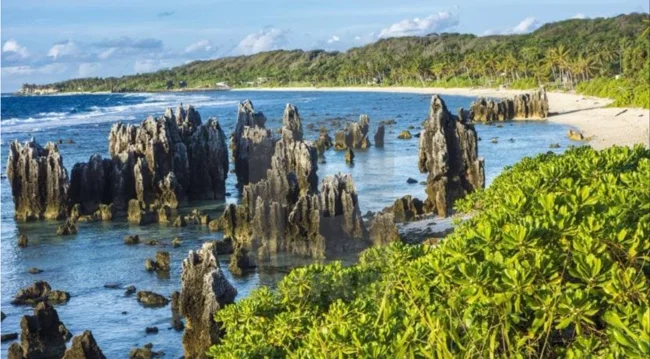
Beautiful landscapes can be found on the island of Nauru...
...but basically it looks like this
The local geological treasure is nothing other than phosphates, which are used to produce mineral fertilizers. The world's largest natural deposits are found in Morocco, China, Brazil. And in Nauru. Or rather, they were there, because within 50 years, all the phosphates on the island were scooped out. It is precisely their exploitation that is linked to the history of the glory and subsequent poverty of the planet's tiniest island nation.
Billions in Dung
Nauru was discovered by the British in the late 18th century, but the Germans took possession first in 1888. They discovered that the 30-meter-high plateau in the center of the island, covered with almonds and pandanus, was a huge lump of phosphate. All they could do was scoop it out with an excavator, load it onto trucks, and transport it back to Europe. The Germans did just that, and developed the deposit until 1914, when they lost the island during World War I.
Nauru was recaptured by Australia, which gained excavators and trucks, as well as a vast swathe of phosphate. They mined it intensively, but it never ran out. Australia was replaced by Japan in 1942, then Japan was kicked out, Australia returned, and this continued until Nauru gained independence in 1968. 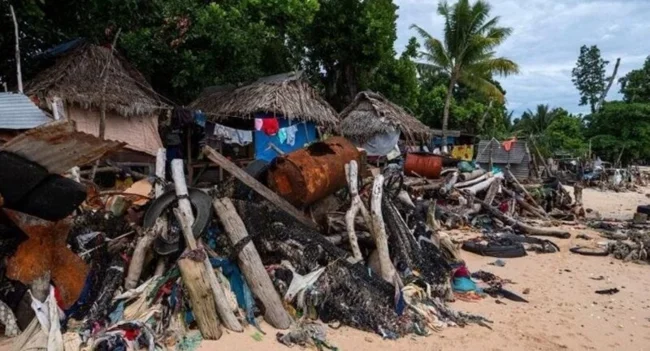
Phosphate Mining on Nauru
Nothing changed for the island as a geographical entity – phosphate mining continued. The Australians didn't leave Nauru either. However, now part of the income from phosphate sales went directly to the treasury of the newly formed republic, whose authorities were a little overwhelmed by the wealth that had fallen upon them. Frankly, they didn't know what to do with the money. Corruption on an island slightly larger than Kronstadt and with a population of 6,000 is hard to spot—it's all in plain sight. There's a hospital and a school, thanks to the Australians. There were two options: hand out the money to residents or save it for the future. 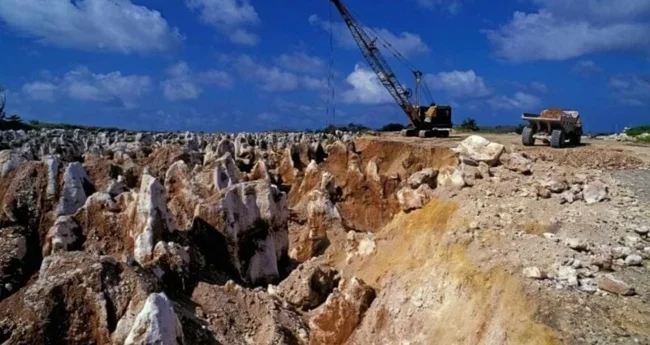
The Nauruan government decided to pursue two paths at once. The "helicopter money" distribution was going well, and within a few years, life for the local population had become a fairy tale. People who had recently lived in log and stick huts built comfortable homes, hired servants from Indonesia and China, began vacationing in Southeast Asia and Australia, and bought expensive equipment and cars, which were brought to the island by ocean-going trucks. It didn't matter that the only paved road ran only along the coast and was 35 kilometers long. It didn't matter that there was simply nowhere to drive, since all life took place in the southwestern part of the island, while the rest of the land was mercilessly torn apart by excavators. None of this mattered; what mattered was status and wealth, which, essentially, there was no one to show off. 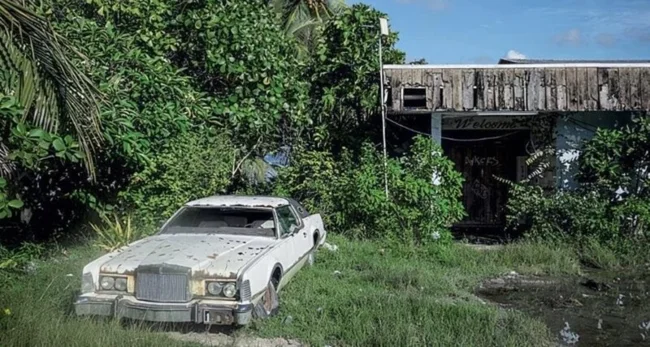
Nauru's cars are now rusting in yards and landfills.
While the population's well-being was excellent, the Nauruan authorities somehow struggled with the national "piggy bank." Lacking investment specialists, the republic invested in dubious funds that failed, turning the phosphate money into dust. Lacking a clear plan, the government resorted to extremes: first creating its own airline, whose planes flew empty, then buying up hotels in Asia en masse from dubious developers. And it even invested in the arts, funding expensive projects, such as an Italian musical about the personal life of Leonardo da Vinci, which flopped at the box office.
All this led to the local "stabilization fund" mysteriously shrinking from $3 billion in 1980 to $0.14 billion in 1995.
What happens when you run out of money
And it was soon necessary to use it. At the end of the last millennium, the inevitable happened – the island's phosphates ran out. It was literally razed to the ground, and 70% of the territory became a lifeless labyrinth with sharp peaks of fossilized coral. At first, the government decided to use the remaining "piggy bank" to improve the area – importing soil and planting trees. But then it thought, "If I'm going to die, I'll make music!" and began squandering the remaining funds. Literally squandering it, as the country had become the largest food importer in Polynesia. The money also went to supporting the bloated bureaucracy, jobs for which were created during the boom years.
The center of Nauru Island after phosphate mining
But the "piggy bank" finally melted away, and the government was faced with the clear question: "How will we survive?" The Nauruan authorities came up with an original solution: they filed a lawsuit against Australia, which had damaged the environment and nature with phosphate mining during the colonial years. It didn't matter that the island had been transformed into a "lunar landscape" in the modern era; the main thing was to squeeze something out of Australia.
They squeezed it out, and then just as quickly squandered the money. Then the authorities decided to turn Nauru into an offshore cesspool, allowing any financial institutions to register there. The island quickly became a haven for money launderers. However, after the 2001 terrorist attacks, the Americans demanded an end to such operations. After considering the situation, the Nauruan government agreed—in exchange for its compliance, however, receiving American aid.
Nauru also didn't forget its "cash cow," Australia, which, after paying compensation, began supplying the island with food, drinking water, and fuel through humanitarian aid. Nauruan authorities offered to host a camp for illegal migrants seeking to reach Australia. In return, the island nation received a stable salary, making ends meet. 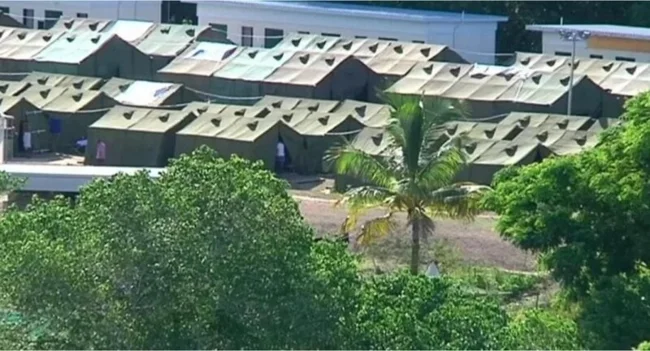
Migrant camp on the island. Nauru, 2005
So how can we avoid the favorite game of all small Pacific states—switching diplomatic recognition between China and Taiwan? Both rival countries generously reward those Pacific "dwarfs" who make the "right decision." So, having received money from China, Nauru later changed its mind and recognized Taiwan. But after squandering its "reward," it switched back to China. This political game was so popular with Nauruan diplomats that they began trading their vote in the UN. In 2009, the republic became the fourth country in the world to recognize the independence of Abkhazia and South Ossetia. 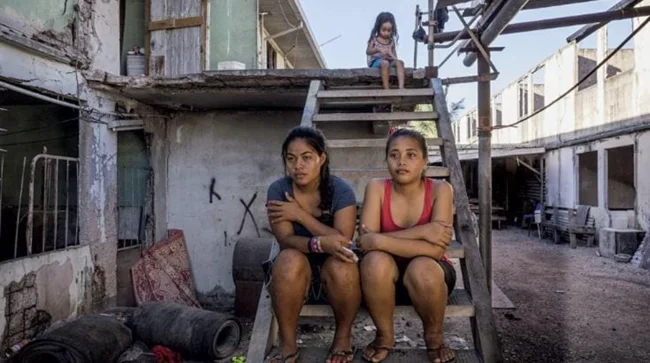
Nauru has no official capital, only a single administrative region where the people live.
Poverty and Indifference
But tourists aren't coming to Nauru. A country that could have built a decent resort with phosphate money continues to feed on itself and doesn't care about tourists. The island offers minimal amenities, and there's nothing to see in Nauru. Vegetation remains on only 30% of the island's territory, the coastline is horribly littered, there are no organized beaches, and the experience lasts no more than four hours.
So what does Nauru survive on now? Humanitarian aid, the sale of fishing licenses in territorial waters, and phosphates. They continue to mine phosphates, albeit in much smaller quantities. Seven years ago, phosphates were discovered under the green lawn of the presidential palace and were immediately excavated. The country's population (11,000) is practically unemployed, yet it's considered the fattest in the world (Nauru ranks first in the ranking of countries with the highest diabetes rate). This is hereditary, thanks to the canned goods that were imported here by the ton in the 1980s. 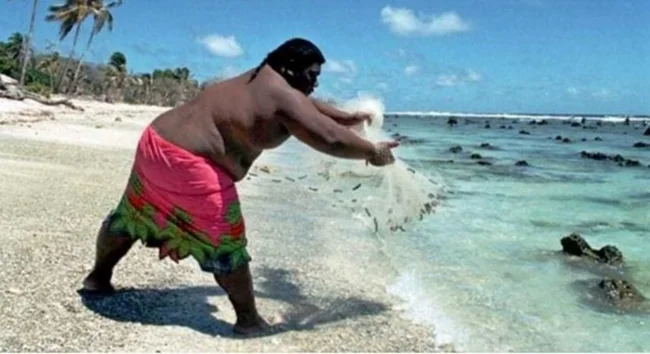
There are many diabetics among Nauruans.
The health problem is further exacerbated by another record: Nauru is the world's heaviest smoking country. 58% of the population is afflicted with this habit. Moreover, there are slightly more women smokers than men, which is extremely unusual.
Nauruans still remember the happy times of the 1970s and 1980s, but they don't regret the lost wealth at all. This is a trait shared by many Polynesians (and not only them)—living one day at a time and extracting small joys even from the depths of hopeless misery. For the rest of the world, the story of this small island, with its wounds that cannot be healed, remains an example of how greed and foolishness can destroy an entire country.
